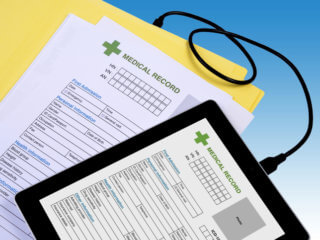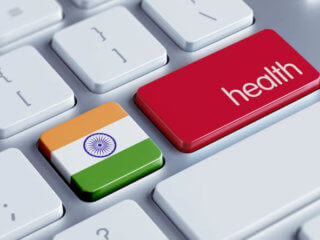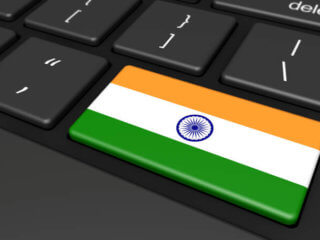eHealth involves the use of electronic technology to deliver services and information related to health. It covers a broad range of areas such as electronic records, social media, mobile health apps (m-Health) and the collection of big data for analytics. A lot of European countries like Netherlands, Estonia, Luxembourg, and Germany have invested heavily in eHealth systems which have led to the development of centralized health care providing solutions and also decreased the health care costs incurred.
eHealth platform for patient-centered services in Estonia
Estonia has set new standards in providing e-services to its citizens. All of the schools and government organizations in Estonia have a broadband connection, and 99% of the bank transactions are made online. The country has one of the most cost-effective health care systems in the world and boasts of having a highly decentralized health services provider network with two big hospitals, 18 regional hospitals, and other GP level hospitals.
Estonia has created one of the most successful systems of its kind in the world, offering its people streamlined, online access to services in health care. 95% of data by hospitals and family doctors is stored digitally in Estonia. The country has adopted the system of ePrescription, with 99% of the prescriptions being digital. 99% of the patients in Estonia have digital health records, and health care providers do not require a paper to prescribe medicines. People can look for their invoices and the money they have spent on health care as well as indicate their statement of intention about donating their blood and organs on the online platform.
Secure data exchange has been the cornerstone of Estonian health care infrastructure. Estonian government is of the view that the data belongs to people and they can revoke access to their data whenever they like.
There are some challenges encountered while developing such a system. First and foremost, resources should be shared to the maximum extent possible among various services to make them viable. Secondly, there needs to be a balance between the security and user-friendly behavior of the platform. Strict security restrictions should not affect the user’s experience.
| Recommended for you | |
| Achieving interoperability in eHealth systems in Europe | |
| 50 digital health events across Europe | |
| How to raise funding for your digital health startup in Germany? |
Towards interoperable eHealth services in the Netherlands
Founded in 2002, Nictiz has established itself as a major national competence center for health IT and overlooks the tasks of setting standards, monitoring eHealth status In Netherlands, and connect people with various organizations.
Netherlands boasts of having the most digitally advanced health care system with 98% of the GPs using only digital records. Electronic document management for health care has led to high quality of care, increased safety of patients and reduced administrative burden on the staff. The country provides high-quality health care at a higher cost as compared to other nations.
Users measure only their physical activity using mobile apps rather than using them to gain access to other medical information. Apart from technological advancements, social innovation is also required as people aren’t aware of many digital health services. Most general practitioners offer online services such as requesting repeat medication and booking appointments. But, a large segment of people does not know of the services being provided online. The percentage of people making appointments online has increased meagerly to 3% in 2016 as compared to 2% in 2013.
Electronic record keeping among medical specialists grew from 66% in 2013 to 86% in 2016. But, time spent on registering records online is out of proportion with the profit they make. Some challenges are plaguing the Dutch digital health care system such as unawareness among the patients and fragmented and no centralized data.
eHealth platform and electronic health records for Luxembourg
Luxembourg is a Catholic country with strong commitment to enhance ICT-driven economic and health care development and consolidate the country’s position in ICT area for the welfare of its citizens. Following the footsteps of other big countries in Europe, Luxembourg’s government launched an eHealth action plan in 2006.
Action plan focused on the development, and deployment of the eSante platform, a national electronic platform for the exchange of health data at national level. The primary objective of national eHealth services platform is to facilitate seamless communication between health care professionals and provide an integrated digital health care system.
eSante platform was launched in 2014 and provided a platform for communication between health care providers and patients. It provides secure messaging tool collaborative workspace for the health care professionals working in the same domain. The online platform also provides services like ePrescription, lab summary and discharge report for the patients.
Countries worldwide clearly recognize the potential of digital health; over the past decade, they have invested heavily in digital health programs. 93%*of European countries have made public funding available for e-Health programs, and 81% of European countries allow health care organizations to use social media to promote messages as part of their health campaigns. Such digital platforms could revolutionize health-service use and delivery and also help health systems bend the cost curve.
| Technologies | Challenges |
|---|---|
| Electronic record keeping, ePrescription, Big Data, Analytics, Data Mining | Unaware patients, Balance between security and usability, Tradeoff between health care quality and cost. |
Moderator: Dr. Stephan Schug, ZTG Centre for Telematics and Telemedicine GmbH
Speakers:
IndrekJakobson, Project Manager, Ministry of Social Affairs, Estonia
Merik Seven, Senior Advisor, NICTIZ, The Netherlands
Giuseppe Fatone, Deputy Director-General, AgenceéSante Luxembourg
Video URL: https://www.youtube.com/watch?v=DcPa0nl3ZKg&index=34&list=PL98iSagl_rnIwKONL-dQmj9Y1mOGAjvW8
Upload Date: 28th November 2016
Video code: 16G2041
*Source: http://www.euractiv.com/section/health-consumers/news/who-pushes-digital-technology-in-eu-healthcare/
Nictiz: http://www.nictiz.nl
ESante: https://www.esante.lu
Image credit: www.istockphoto.com

















